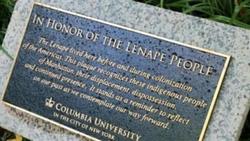November 27
I. Announcements
- Next Assignment: Choose one of your two writings that you just did: reading response #16 OR reading response #17. For the next class, you are going to extend that reading response another 250-300 words. You will build right into the last essay. You have a few options:
- Watch a documentary, vlog, or other youtube/vimeo sensation related to your essay’s topics. Discuss that documentary. Incorporate your discussion in an interesting way.
- Load your writing with statistics. Incorporate your information in an interesting way. Really set the material context for the arguments you are making.
- Read another 1-2 essays in your area that are available at the website. Incorporate your new readings in an interesting way. Really make an extended statement.
Send your 250 words to [email protected]. There is no class on Wednesday since Carmen couldn't get a later flight. These extended notes need to become part of a longer essay that must go on your ePort (the line that says EXTENDED essay).
I. Opening: Western Privilege Worksheet
II. Short Viewing: What do critical indigenous perspectives have to do with gender studies? How do Indigenous Feminisms challenge us?
|
|
|
|
|
III. Questions/ Issues
"If you are reading this in the United States or Canada, whose land are you on, dear reader? What are the specific names of the Native nation(s) who have historical claim to the territory on which you currently read this article? What are their histories before European invasion? What are their historical and present acts of resistance to colonial occupation? If you are like most people in the United States and Canada, you cannot answer these questions. And this disturbs me." ~ Qwo-Li Driskill
What do critical indigenous perspectives have to do with gender studies? How do Indigenous Feminisms challenge us? How does being in the West shape us? V. Group Meetings (if time)
VI. Group Presentations VII. Return of Midterm Grades
In dedication to . . .
|
|
Though often conflated with colonialism more generally, settler colonialism is a distinct imperial formation. Both colonialism and settler colonialism are premised on exogenous domination, but only setter colonialism seeks to replace the original population of the colonized territory with a new society of settlers (usually from the colonial metropole). This new society needs land, and so settler colonialism depends primarily on access to territory. This is achieved by various means, either through treaties with indigenous inhabitants or simply by “taking possession.” Britain, for example, implemented the doctrine of “terra nullius” (“land belonging to no one”) to claim sovereignty over Australia. The entire continent was thereby declared legally uninhabited, despite millennia of Aboriginal occupation. ~Tate A. LeFevre


